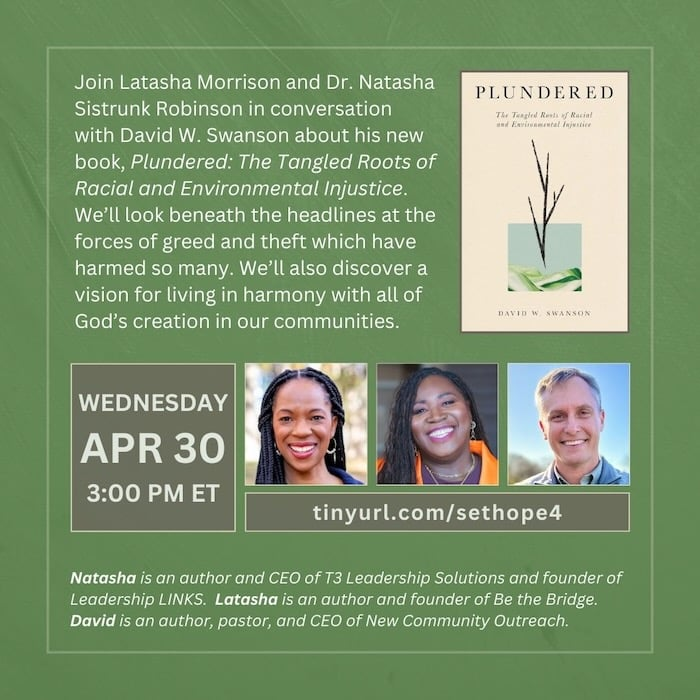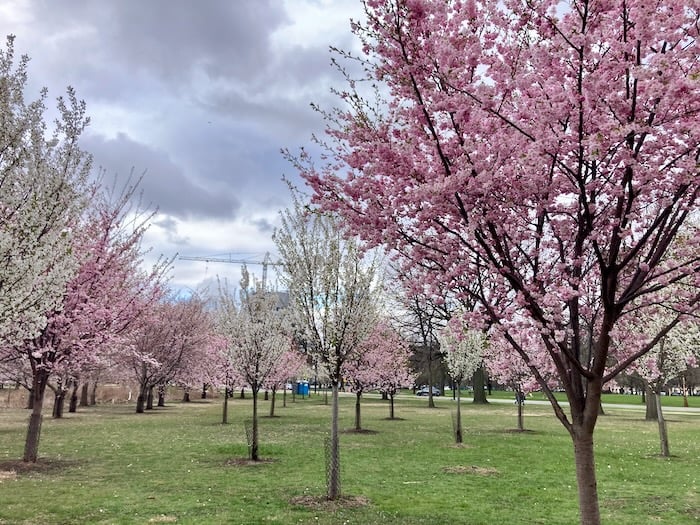Resurrection and Re-creation
"For the sun turned back and the earth shook and the mountains were rent, and all were awed."
On this Holy Saturday, as we wait for the the first light of Resurrection Sunday dawn, I’m sharing a portion of the sixth chapter from Plundered, “Creator and Re-Creator.” Happy Easter, friends!

The Son of God comes to earth not as an idealized human, but as one who knew the hardships of life under occupation. If waves, wind, and wheat recognize their Creator, so do the worn-down, trampled-on, and used-up women and men who encounter the peasant teacher from Galilee.
Like them, he has lived under the threat of imperial violence and in the aftermath of the empire’s insatiable appetites for more and more and more. Like them, he knows the terrorizing purpose of crucifixion and the curse of being treated like a resource to exploit. Jesus’ tender attention is directed here too. Those who beg, weep, and suffer in isolation are drawn to him and find themselves being put back together, reconciled to their bodies and communities.
And it is this marginalized God-man whose re-creating acts and words stir up the powers of death. Behind the religious and imperial players who arrange his hanging are the powers of evil unleashed by our sinful rebellion. In Athanasius’s phrasing, the deathly “corruption” that resulted from the betrayal of our priestly vocation collected on Jesus’ sinless body. He took our individual deaths and the cosmic death animated by our betrayal onto himself and puts death itself to death.
And precisely here, at the concentration of sin and death, does the purpose of the incarnation become most clear. What “is most wonderful,” exclaims Athanasius, “even at his death, or rather at the very trophy over death, I mean the cross, all creation confessed that he who was made known and suffered in the body was not simply a human being but Son of God and Savior of all. For the sun turned back and the earth shook and the mountains were rent, and all were awed.” As Jesus breathed his last, days before his disciples could begin to understand these shocking circumstances, the rest of creation began to quiver in recognition of their redemption. The One through whom all things were spoken into being was now re-creating the cosmos through his death and resurrection.
In the incarnation, Jesus assumes not just our flesh, he also renews our vocation of caretaking priests. Where we had turned away from our purpose of inviting the creation to find its fullness in the Creator and blessing the creation with the Creator’s love, Jesus takes our sinful rebellion onto himself that we might once again know the Creator’s love and bless the world with that love. As Jesus raises in victory, he opens the way for humans to reclaim the call issued so long ago in the garden. “Thus,” writes Pope Francis, “the creatures of this world no longer appear to us under merely natural guise because the risen One is mysteriously holding them to himself and directing them towards fullness as their end.”
In his life, we glimpse the fullness of the reconciliation Jesus would accomplish. In his death, all of creation is ransomed from the consequences of our sin. In his resurrection, the Word who spoke us into existence reconciles us to our purpose. Filled with his very Spirit, the imago Dei is restored to our role of nurturing the cosmos toward its Creator and blessing the creation with the Creator’s love…
Here again we see that the incarnation makes all the difference. We cannot content ourselves with a private, spiritualized faith— a faith that quiets our hearts while leaving us detached from the world’s delights and aches. But neither can we succumb to the endless striving and hustling that characterizes so much justice-seeking. Rather, the life, death, and resurrection of the incarnate Son of God reconciles us to our caretaking vocation. This reconciliation does not hearken back to a make-believe past when all was well between, say, white and Black people. It does not imagine a utopian moment when certain people lived in perfect harmony with the land. No, this reconciliation is older and deeper.
Though we live in a universe still shaped by death’s last gasp, the victory won for us by Jesus re-creates a life outside of death’s defining shadow. To follow the Savior who has passed through death into life is to no longer fear it writes Athanasius, “but with the sign of the cross and faith in Christ tread it under foot as something dead.” Freed from the fatal consequences of our sin, we have been reconciled to our Creator and to his creation that we might, once again, bless the world.
(Photo credit: Abdullah Ghatasheh)
Plundered Webinar

At the end of this month I’ll be joining Latasha Morrison, Dr. Natasha Sistrunk for another webinar. This one will use my book as a jumping off point. I hope you can join us.
The View From Here

The cherry blossoms in Jackson Park were showing off during by Sabbath walk this past Tuesday.